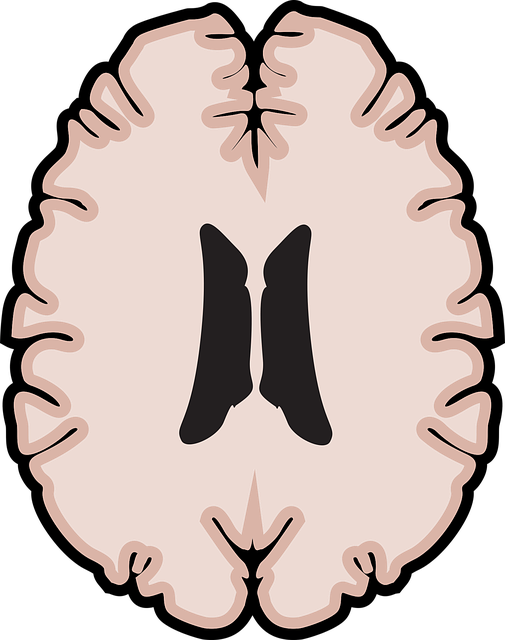Mental health crisis hotlines provide 24/7 support and guidance for individuals in emotional distress, using mind over matter principles to empower proactive mental health management. Trained counselors offer immediate crisis assistance and connect callers with resources like Castle Rock Terminal Illness Therapy for conditions such as depression, anxiety, and suicidal thoughts. Castle Rock offers a specialized support system focusing on self-awareness, stress management, and holistic care for individuals facing terminal illnesses, equipping them with lifelong coping mechanisms for mental wellness. These hotlines prioritize confidentiality, fostering trust and encouraging early help-seeking. Skilled and empathetic staff, trained in areas like cultural sensitivity and trauma care, ensure effective responses and life-saving interventions through role-playing and simulations.
“In times of mental health crises, access to immediate support can be life-saving. This article explores the vital role of crisis hotline services in providing emergency assistance. We delve into the functioning of these hotlines, highlighting the expertise offered by Castle Rock Terminal Illness Therapy, a leading provider.
From understanding the signs to knowing who to contact, we guide readers through crucial aspects like confidentiality and training. By shedding light on these resources, we aim to empower individuals to navigate mental health emergencies effectively.”
- Understanding Mental Health Crisis Hotlines
- The Role of Castle Rock Terminal Illness Therapy
- Accessing Emergency Support: Who to Reach Out To
- Confidentiality and Anonymity: Ensuring Privacy
- Training and Preparedness: What Makes a Successful Crisis Hotline
Understanding Mental Health Crisis Hotlines

Mental Health Crisis Hotlines serve as vital resources for individuals facing intense emotional distress or a mental health crisis. These 24/7 services provide immediate crisis intervention guidance and support, offering a safe space for those in need to connect with trained professionals. The primary goal is to de-escalate situations, offer short-term support, and connect callers with appropriate long-term resources such as Castle Rock Terminal Illness Therapy or trauma support services.
Hotlines are designed using mind over matter principles, focusing on empowering individuals to manage their mental health proactively. By offering a confidential and non-judgmental platform, these hotlines encourage open communication, enabling people to express their feelings, fears, and struggles. Whether dealing with depression, anxiety, suicidal thoughts, or other mental health challenges, trained counselors provide immediate crisis support and guidance tailored to each individual’s unique needs.
The Role of Castle Rock Terminal Illness Therapy

Castle Rock Terminal Illness Therapy offers a crucial support system for individuals facing mental health crises, especially those dealing with terminal illnesses. This specialized service provides a safe space for emotional expression and fosters self-awareness exercises that promote healing. By focusing on burnout prevention, they help clients develop strategies to manage stress and maintain emotional regulation during challenging times. Through individualized therapy sessions, the team at Castle Rock empowers individuals to navigate their mental health journeys with resilience and grace.
The approach of Castle Rock Terminal Illness Therapy goes beyond addressing symptoms; it aims to equip clients with lifelong coping mechanisms. By nurturing self-awareness, they enable people to recognize and manage their emotional responses effectively. This holistic care ensures that individuals not only survive but thrive amidst life’s complexities, fostering a sense of calm and clarity even in the midst of turmoil.
Accessing Emergency Support: Who to Reach Out To

In moments of intense crisis or distress, accessing immediate support is paramount for one’s well-being. For those grappling with mental health challenges, a dedicated hotline offers a lifeline. This 24/7 service is designed to provide swift assistance, ensuring individuals in need can receive prompt care without the hassle of navigating complex systems. Whether it’s a panic attack, overwhelming anxiety, or feelings of despair, trained professionals on these hotlines are equipped to offer guidance and support. They can connect people with appropriate resources, including emergency medical services, crisis intervention centers, or suitable therapy options like Castle Rock Terminal Illness Therapy.
When reaching out, individuals should expect a non-judgmental space where they can openly discuss their struggles. By dialing the hotline number, one can gain access to trained listeners who employ effective stress reduction methods and mental wellness coaching programs development techniques. These professionals aim to stabilize the individual’s current state while also fostering positive thinking and resilience for long-term mental health management.
Confidentiality and Anonymity: Ensuring Privacy

When reaching out to a mental health crisis hotline, individuals often prioritize confidentiality and anonymity as key concerns. These support services understand the sensitivity of personal struggles and are committed to upholding strict privacy standards. Every interaction is handled with discretion, ensuring that callers can openly discuss their challenges without fear of disclosure. This commitment to confidentiality fosters an environment where people feel safe to share their experiences, be vulnerable, and seek help.
The promise of anonymity encourages individuals to seek support earlier in their struggles, recognizing that asking for help is a sign of strength. It empowers users to explore mental health issues openly, whether it’s managing stress, dealing with grief, or addressing more complex concerns like Castle Rock Terminal Illness Therapy. Hotline services play a vital role in promoting self-care routines (Mind Over Matter Principles) and developing healthier coping mechanisms by maintaining a safe, non-judgmental space for every caller.
Training and Preparedness: What Makes a Successful Crisis Hotline

A successful crisis hotline relies on well-trained and prepared staff. Effective training for mental health crisis hotline operators involves a multifaceted approach that combines rigorous education, practical skills development, and ongoing support. These programs often incorporate aspects of mental health education, design with cultural sensitivity in mind, and specialized training in trauma support services to ensure operators are equipped to handle a wide range of caller needs.
The ability to remain calm under pressure, active listening skills, empathy, and strong communication techniques are crucial. Training should also emphasize understanding the nuances of different mental health conditions, including terminal illness, to provide informed and compassionate assistance. Regular role-playing exercises, simulations, and debriefings help hotline staff hone their response strategies, fostering an environment where they can effectively navigate complex emotional situations and offer life-saving support.
Mental health crisis hotline support services play a vital role in providing immediate assistance and long-term solutions. As highlighted, organizations like Castle Rock Terminal Illness Therapy offer specialized care, ensuring individuals in distress receive tailored guidance. By prioritizing confidentiality and anonymity, these hotlines foster trust, encouraging those in need to seek help without hesitation. Through comprehensive training and preparedness, staff are equipped to handle various crises effectively, making these services a game-changer in managing mental health emergencies.














